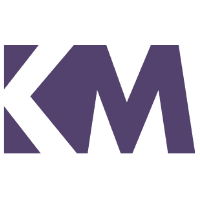A Comprehensive Strategy to Boost Awareness, Consideration, and Qualified Leads with Search Engine Optimization (SEO)
Introduction
Having a strong online presence is essential for any business aiming to succeed. Whether you’re operating in the B2B or B2C sector, optimizing your website for search engines can significantly enhance your brand’s visibility, attract more qualified leads, and ultimately drive more conversions. Search Engine Optimization (SEO) is the process of improving your website’s organic rankings on search engine results pages (SERPs) through various strategies and techniques.
In this comprehensive blog post, we will explore the importance of SEO, the different types of SEO, factors that contribute to site ranking over time, and provide you with five quick SEO tips that you can implement to improve your website’s performance. Additionally, we will outline a project timeline to help you understand when you can expect to see improvements and answer some frequently asked questions about SEO.
Need a comprehensive SEO strategy? Send us your request and we can organize a complementary online discovery session
The Importance of SEO and Types of SEO
Importance of SEO
SEO is critical for several reasons as below.
- Enhanced Visibility: SEO helps your website appear in search results when potential customers search for relevant keywords. This increased visibility can drive more organic traffic to your site.
- Credibility and Trust: Higher search engine rankings establish your brand as a credible and authoritative source in your industry. Users tend to trust websites that appear at the top of search results.
- Improved User Experience: SEO focuses on optimizing your website’s structure, speed, and content, resulting in a better user experience. Search engines favor websites that provide a seamless experience for users.
- Cost-Effective Marketing: Compared to paid advertising, SEO is a cost-effective marketing strategy. Once your website starts ranking higher, you can enjoy continuous organic traffic without ongoing ad spend.
- Competitive Advantage: Effective SEO strategies can help you stay ahead of your competitors by ensuring your website ranks higher for relevant search queries.
Types of SEO
- On-Page SEO: This involves optimizing individual pages on your website to rank higher and earn more relevant traffic. Key elements include keyword optimization, meta tags, headers, and internal linking.
- Technical SEO: This focuses on improving the technical aspects of your website to enhance its visibility and performance. Important factors include site speed, mobile-friendliness, and secure connections (HTTPS).
- Off-Page SEO: This refers to activities conducted outside your website to improve its search engine rankings. The primary method is building high-quality backlinks from other reputable websites.
- Local SEO: This aims to optimize your online presence to attract more business from relevant local searches. It includes managing local listings, reviews, and local keyword optimization.
- Content SEO: This involves creating and optimizing content to attract and engage your target audience. High-quality, relevant content can improve your search engine rankings and drive more organic traffic.
Factors That Contribute to Site Ranking Over Time
Several factors influence your website’s ranking on search engines:
- Domain Authority (DA): DA is a metric developed by Moz that predicts how well a website will rank on search engines. It is influenced by factors such as the quality and quantity of backlinks, the age of the domain, and the overall SEO performance of the site.
- Backlinks: High-quality backlinks from reputable websites can significantly improve your website’s authority and rankings. Search engines view backlinks as votes of confidence in your content.
- Content Quality: Creating valuable, relevant, and engaging content is crucial for SEO success. Search engines prioritize content that meets user intent and provides a positive experience.
- User Experience (UX): Factors such as page load speed, mobile-friendliness, and easy navigation contribute to a positive user experience, which can positively impact your rankings.
- Technical SEO: Ensuring your website is technically sound, with a clean code, proper indexing, and secure connections, is essential for improving search engine rankings.
- Keyword Optimization: Strategically using relevant keywords throughout your content, meta tags, headers, and URLs can help search engines understand the topic of your pages and rank them accordingly.
- Social Signals: While not a direct ranking factor, social signals such as likes, shares, and comments on social media can indirectly influence your SEO performance by driving traffic and increasing visibility.
5 Quick SEO Tips and How to Implement Them
- Conduct Thorough Keyword Research
Implementation:
- Use keyword research tools such as Google Keyword Planner, Ahrefs, or SEMrush to identify relevant keywords for your industry.
- Focus on long-tail keywords that are less competitive and more specific to your niche.
- Analyze the search volume and competition for each keyword to prioritize your efforts.
- Incorporate these keywords naturally into your content, meta tags, headers, and URLs.
Impact: Thorough keyword research helps you understand what your target audience is searching for and allows you to create content that meets their needs. By targeting the right keywords, you can improve your chances of ranking higher in search results and attracting qualified traffic.
- Optimize On-Page Elements
Implementation:
- Ensure each page has a unique and descriptive title tag that includes your target keyword.
- Write compelling meta descriptions that entice users to click on your search result.
- Use header tags (H1, H2, H3) to structure your content and include relevant keywords.
- Optimize your images by using descriptive file names and adding alt text.
- Create internal links to connect related content on your website.
Impact: Optimizing on-page elements improves the relevance and readability of your content for both users and search engines. This can lead to higher rankings, increased organic traffic, and better user engagement.
- Create High-Quality Content
Implementation:
- Focus on creating content that is valuable, informative, and engaging for your target audience.
- Use a mix of content formats such as blog posts, videos, infographics, and case studies.
- Ensure your content is well-researched, accurate, and up-to-date.
- Incorporate relevant keywords naturally throughout your content.
- Promote your content through social media, email marketing, and other channels to increase its reach.
Impact: High-quality content attracts and retains visitors, encourages social sharing, and earns backlinks from other reputable websites. This can improve your website’s authority, rankings, and overall visibility.
- Build High-Quality Backlinks
Implementation:
- Reach out to industry influencers, bloggers, and websites for guest posting opportunities.
- Create shareable content such as infographics, research reports, and case studies that others will want to link to.
- Participate in industry forums, online communities, and social media groups to build relationships and earn backlinks.
- Monitor your backlink profile using tools like Ahrefs or Moz and disavow any low-quality or spammy links.
Impact: High-quality backlinks signal to search engines that your website is authoritative and trustworthy. This can improve your domain authority and search engine rankings, driving more organic traffic to your site.
- Improve Website Speed and Mobile-Friendliness
Implementation:
- Use tools like Google PageSpeed Insights and GTmetrix to analyze your website’s performance and identify areas for improvement.
- Compress images and use a content delivery network (CDN) to reduce load times.
- Minimize the use of large scripts and plugins that can slow down your site.
- Ensure your website is responsive and provides a seamless experience on mobile devices.
- Implement Accelerated Mobile Pages (AMP) for faster loading times on mobile.
Impact: A fast and mobile-friendly website enhances user experience, reduces bounce rates, and improves search engine rankings. This can lead to higher engagement, more conversions, and better overall SEO performance.
Project Timeline for SEO Improvements
SEO is a long-term strategy, and the timeline for seeing improvements can vary based on several factors, including the competitiveness of your industry, the current state of your website, and the effectiveness of your SEO efforts. Here’s an estimated timeline for when you can expect to see improvements based on the tips provided:
Month 1-2: Initial Setup and Optimization
- Conduct keyword research and identify target keywords.
- Optimize on-page elements, including title tags, meta descriptions, headers, and images.
- Create and publish high-quality content focused on target keywords.
- Begin building high-quality backlinks through outreach and guest posting.
Month 3-4: Monitoring and Adjustments
- Monitor your website’s performance using tools like Google Analytics and Google Search Console.
- Analyze the impact of your SEO efforts and make necessary adjustments.
- Continue creating and promoting high-quality content.
- Build more backlinks and strengthen relationships with industry influencers.
Month 5-6: Significant Improvements
- Start seeing improvements in search engine rankings and organic traffic.
- Increase in domain authority (DA) as a result of consistent backlink building and content creation.
- Enhanced user experience due to improved website speed and mobile-friendliness.
- Higher engagement and lower bounce rates as users find valuable and relevant content on your site.
Month 7-12: Steady Growth
- Continue optimizing and refining your SEO strategy based on performance data.
- Consistently create and promote high-quality content to attract more traffic and backlinks.
- Further improvements in search engine rankings, organic traffic, and domain authority.
- Increased brand awareness, consideration, and qualified leads for both B2B and B2C segments.
5 FAQs About SEO and Their Answers
- How long does it take to see results from SEO?
Answer: SEO is a long-term strategy, and it can take anywhere from 3 to 6 months to start seeing significant results. The timeline can vary based on factors such as the competitiveness of your industry, the current state of your website, and the effectiveness of your SEO efforts.
- What is the difference between on-page and off-page SEO?
Answer: On-page SEO involves optimizing individual pages on your website to rank higher and earn more relevant traffic. This includes keyword optimization, meta tags, headers, and internal linking. Off-page SEO refers to activities conducted outside your website to improve its search engine rankings, primarily through building high-quality backlinks.
- How can I improve my website’s domain authority (DA)?
Answer: To improve your domain authority, focus on building high-quality backlinks from reputable websites, creating valuable and relevant content, and optimizing your on-page and technical SEO elements. Consistency and patience are key, as DA improves over time with sustained efforts.
- What role does content play in SEO?
Answer: Content is a crucial component of SEO. High-quality, relevant, and engaging content can attract and retain visitors, earn backlinks, and improve your search engine rankings. Content should be optimized with relevant keywords and provide value to your target audience.
- How important is mobile-friendliness for SEO?
Answer: Mobile-friendliness is extremely important for SEO. With the increasing use of mobile devices for internet browsing, search engines prioritize mobile-friendly websites. A responsive and fast-loading website enhances user experience, reduces bounce rates, and can positively impact search engine rankings.
Conclusion
Implementing effective SEO strategies is essential for any business looking to succeed. By following the five quick SEO tips outlined in this blog post—conducting thorough keyword research, optimizing on-page elements, creating high-quality content, building high-quality backlinks, and improving website speed and mobile-friendliness—you can significantly enhance your online presence, drive more organic traffic, and generate qualified leads.
SEO is a long-term investment that requires consistent effort and monitoring. While it may take several months to see significant improvements, the results are well worth the wait. By focusing on delivering value to your target audience and staying up-to-date with the latest SEO trends and best practices, you can achieve sustainable growth and success for your business.
For more information on our SEO services and packages, visit our SEO Services page. If you’re ready to take your business to the next level with a customized SEO strategy, contact us today!
Page Links for our SEO Services and Packages
Contact Information
For more information or to get started with our SEO services, contact us at:
- Email: [email protected]
- Call/WhatsApp: (+254) 0737 055737







